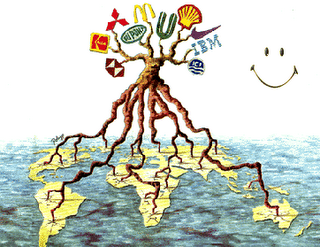
"The Channel Four Television Corporationis a publicly-owned not-for-profit broadcaster operating in the UK. The main public service channel, Channel 4, is a free-to-air service funded entirely by advertising and sponsorship. Unlike the BBC, it does not receive license fee funds."
Channel 4
Channel 4 transmits across the whole of the UK, except some parts of Wales, which are covered by the Welsh language S4C. It is available on all digital platforms (terrestrial, satellite and cable) as well as through traditional analogue transmission.
Channel 4 also operates a number of other services, including the free-to-air digital TV channels E4 and more, the subscription service FilmFour (which will be relaunched as a free-to-air channel in summer 2006), and an ever-growing range of online activities at channel4.com, including the broadband service FourDocs. The FilmFour production division produces and co-produces feature films for the UK and global markets.
The Channel's primary purpose is the fulfilment of its public service remit, which was most recently defined in the 2003 Communications Act. This states that "the public service remit for Channel 4 is the provision of a broad range of high quality and diverse programming which, in particular:
(a) demonstrates innovation, experiment and creativity in the form and content of programmes;
(b) appeals to the tastes and interests of a culturally diverse society;
(c) makes a significant contribution to meeting the need for the licensed public service channels to include programmes of an educational nature and other programmes of educative value; and
(d) exhibits a distinctive character."
As a publisher-broadcaster, Channel 4 does not produce its own programmes but commissions them from more than 300 independent production companies across the UK, a far greater number than any other broadcaster, including the whole of the BBC. It works very closely with the independent production sector, and invests heavily in training and talent development throughout the industry.
The Channel 4 service was originally established under the Broadcasting Act 1981 and was provided for by the Independent Broadcasting Authority. The Channel Four Television Corporation was subsequently established under the Broadcasting Act 1990 and the Channel's functions were transferred over to the new Corporation in 1993. The Corporation's board is appointed by OFCOM in agreement with the Secretary of State for Culture, Media and Sport.
The Building
The Headquarters was a value-for-money, design and build, project with a £35 million cost limit (a long way from the Lloyds of London-type budget). Despite this, it still manages to greatly enhance the street scene by its fullblooded display of all the elegant brand features of the Rogers style-a combination of hi-tech details, repetitive use of a few simple design elements, and visual emphasis on its use of glass, pewter-grey aluminium and exposed structural steelwork.
Independence: 1990–Today
Its new independence helped bring in a rash of programming changes. Instead of aiming for the fringes of society, it began to focus on the edges of the mainstream, and the centre of the mass market itself. It began to show many US programmes in peak viewing time, previously a rarity on UK terrestrial television. It premiered such shows as Friends and ER.
It also started broadcasting reality formats (including Big Brother), and sports like cricket and horse racing. This new direction increased ratings and revenues. However, the Channel 4 contract to broadcast test match cricket ceased with the end of the Summer 2005 Ashes series.
The future
Channel 4 has in recent years raised concerns over how it might finance its public service obligations after digital switch-over. Channel 4 has projected it will have a £100m funding gap. It has stated that it will need further help, possibly in the form of a slice of the licence fee in order to meet these commitments. On April 25, 2006 it was announced that Channel 4's digital switch-over costs would be paid for by licence fee revenues.
Other Channels
Film4
E4
Quiz Call
More4
T4
4Learning
FourDocs
Radio
Oneword
4radio
Programming
Comedy:Shown on Friday Nights e.g. Father Ted,
Drama: American drama is a key part of Channel 4's portfolio, initially with NYPD Blue and ER. These were followed by Without a Trace, The Sopranos, The West Wing and Six Feet Under.
Factual: Channel 4 also has a strong reputation for history programmes and real-life documentaries. It has also courted controversy, for example by broadcasting live the first public autopsy to be carried out in the UK for 170 years, carried out by Gunther von Hagens in 2002
Film: The channel has established a tradition of broadcasting the animated film of Raymond Briggs's picture book The Snowman, which in 1982 was the new channel's first major animated commission, every Christmas


